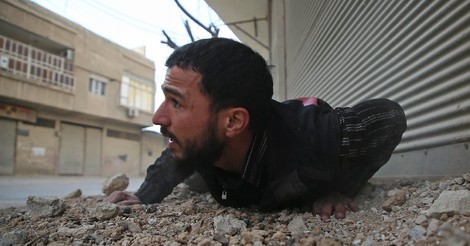Your podcast discovery platform
Curious minds select the most fascinating podcasts from around the world. Discover hand-piqd audio recommendations on your favorite topics.

piqer for: Globalization and politics Global finds
I am an Australian freelance journalist focussing on conflicts, politics, and warzones around the world. I have been working as a journalist for over 5 years, having reported from Australia, Germany, China, Egypt, Palestine, and Ukraine. I am especially interested in the way that new technologies are being used in conflict zones in unexpected and often disturbing ways. During my time working as a journalist, I also co-founded open-source war reporting site Conflict News.
How Syria's Death Toll Is Lost In The Fog Of War
While Joseph Stalin was largely right in the famous (if likely misattributed) quote that “A single death is a tragedy; a million deaths is a statistic”, these statistics are still powerful in their own way. Death tolls might not make an individual 'feel' much, but they do hold weight for those more analytically minded, including policy-makers and politicians.
“Historically, these numbers matter, experts say, because they can have a direct impact on policy, accountability and a global sense of urgency. The legacy of the Holocaust has become inextricably linked with the figure of six million Jews killed in Europe. The staggering death toll of the Rwandan genocide — one million Tutsis killed in 100 days — is seared into the framework of that nation’s reconciliation process.”
Unfortunately, in Syria, the situation is so bad that we have stopped counting the dead. The UN gave up in 2014, while the most recent comprehensive death toll estimate was published in 2016.
Now most media outlets, and indeed the UN, simply refer to 'hundreds of thousands of dead', a number which has such a large range that it approaches a near-Stalinist level of cynicism. So what do we really know about the current death toll in Syria?
Megan Specia's report for the New York Times examines this question and the difficulty of answering it. We know that the number of dead is now well over 500,000, but by how much is almost impossible to answer. Do we de-humanize people's deaths further to the point where they are just 'projections' and 'statistical predictions'? Or do we narrow our count to only those whose deaths can be conclusively proven through the fog of war, and in doing so, risk under-counting by a wide margin?
